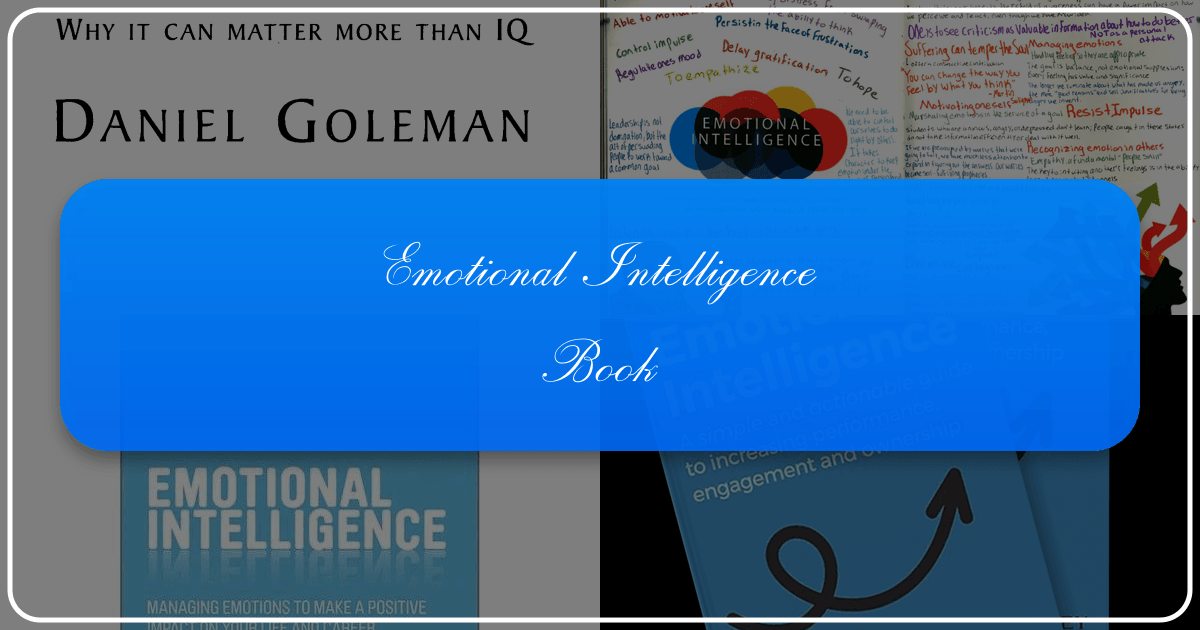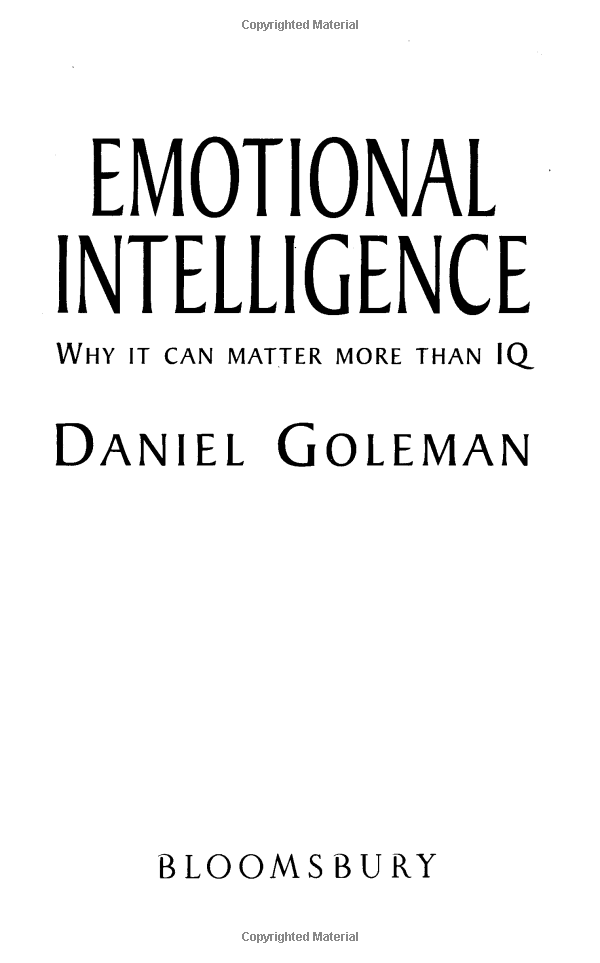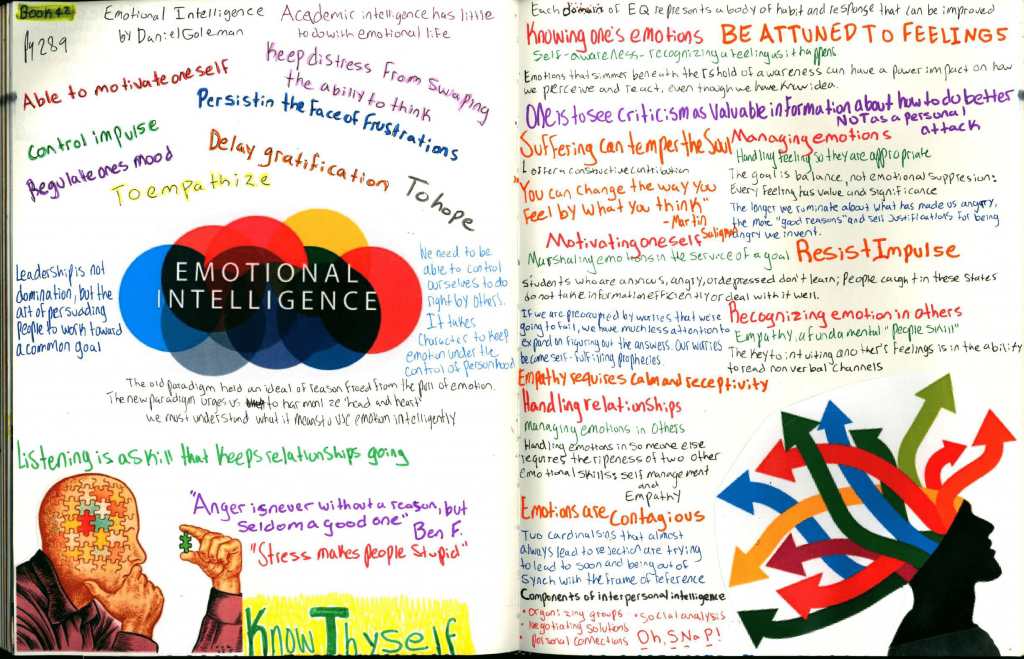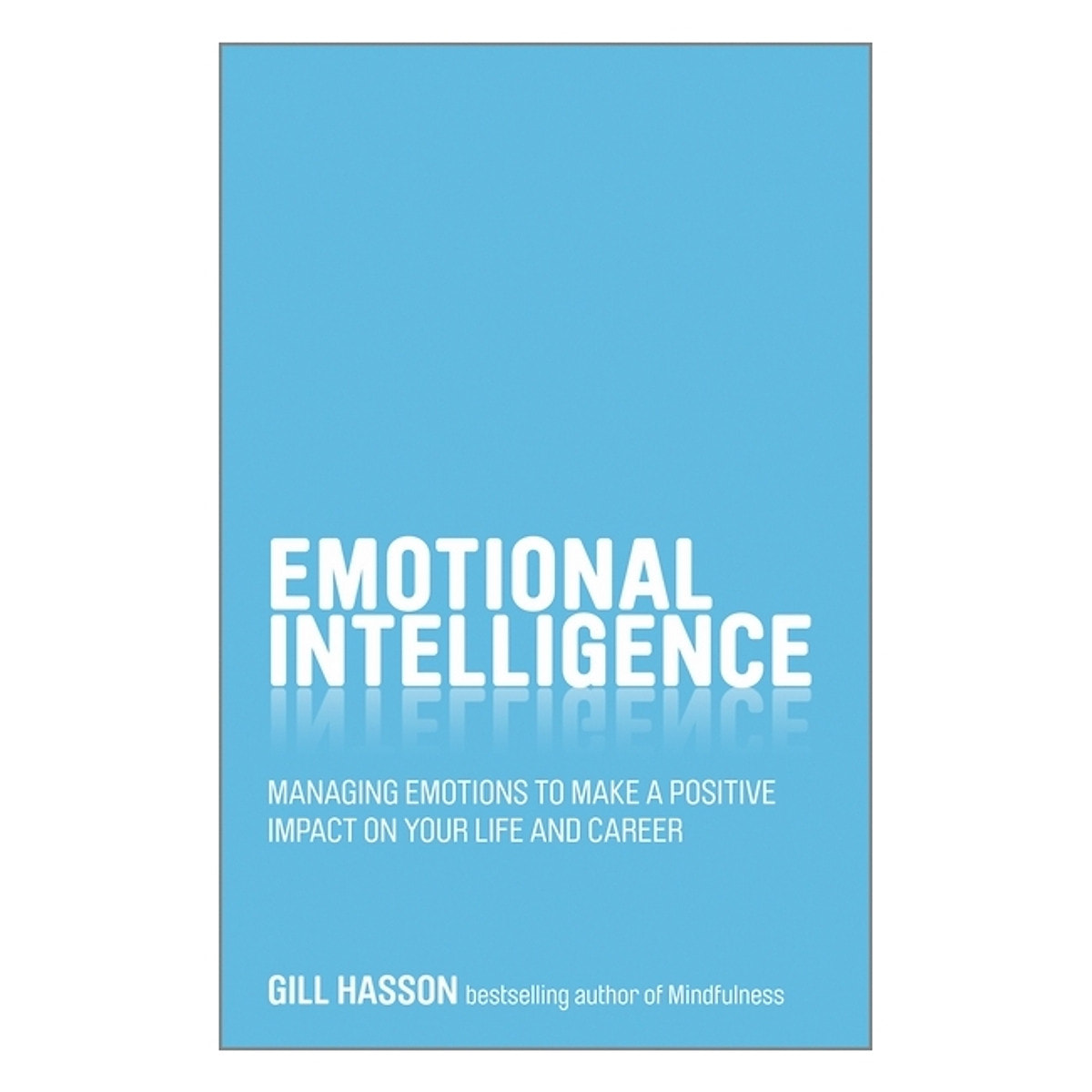Emotional Intelligence: Why It Can Matter More Than IQ – A Comprehensive Review

Daniel Goleman’s Emotional Intelligence: Why It Can Matter More Than IQ, first published in 1995, remains a seminal work in the field of psychology and self-help. This book transcends the traditional focus on IQ, arguing that emotional intelligence (EQ) is a crucial determinant of success and well-being in various aspects of life, from academics and careers to relationships and personal fulfillment. Goleman’s work sparked a widespread interest in EQ, influencing education, business, and popular culture. This review delves into the book’s core concepts, its impact, and its lasting relevance.

The Core Arguments of Emotional Intelligence
Goleman’s central thesis revolves around the assertion that emotional intelligence, encompassing self-awareness, self-regulation, motivation, empathy, and social skills, is as significant as, and potentially more impactful than, IQ in determining life success. He challenges the long-held belief that intellectual ability alone dictates achievement and happiness. Instead, he presents a compelling case for the importance of understanding and managing one’s own emotions, as well as recognizing and responding effectively to the emotions of others.
The book meticulously explores the neurological underpinnings of emotion, highlighting the interplay between the “emotional brain” (limbic system, particularly the amygdala) and the “rational brain” (neocortex). Goleman elucidates how emotional responses, particularly those triggered by the amygdala’s rapid threat detection, can sometimes override rational thought, leading to what he terms “emotional hijacking.” This phenomenon explains impulsive actions driven by fear, anger, or other intense feelings.
Goleman identifies five key components of emotional intelligence:

-
Self-Awareness: Recognizing and understanding one’s own emotions, strengths, weaknesses, drives, values, and their impact on others. This involves accurately assessing one’s emotional state in the moment and understanding how personal feelings influence behavior.
-
Self-Regulation: Managing disruptive emotions and impulses, adapting to changing circumstances, and maintaining a positive outlook. This involves controlling one’s emotional responses, thinking before acting, and bouncing back from setbacks.

-
Motivation: Self-motivation and a commitment to achieve goals, demonstrating initiative, perseverance, and optimism in the face of obstacles. This involves setting realistic goals, finding ways to stay focused, and maintaining hope despite challenges.
-
Empathy: Understanding the emotional makeup of other people, sensing their feelings, and responding with sensitivity. This involves actively listening to others, recognizing nonverbal cues, and showing compassion and concern.
-
Social Skills: Managing relationships effectively, building rapport, finding common ground, influencing people positively, and working collaboratively. This involves communicating clearly, negotiating skillfully, and handling conflict constructively.
Goleman argues that these five components are not innate and immutable but are largely learned and can be developed throughout life. He emphasizes the importance of emotional literacy, advocating for incorporating emotional skills training into educational curricula, starting in early childhood. This early intervention, he argues, is crucial for shaping a child’s capacity for learning and emotional well-being, fostering resilience, and promoting social and interpersonal effectiveness.
The Impact and Criticism of Goleman’s Work
Emotional Intelligence achieved phenomenal success, spending a year and a half on The New York Times Best Seller list and becoming a global phenomenon. Translated into over 40 languages, the book’s influence on the public’s understanding of emotion and its role in success is undeniable. It popularized the concept of emotional intelligence, making it accessible to a broad audience and sparking further research and exploration in the field.
However, Goleman’s work has not been without its critics. Some researchers have questioned the validity of EQ as a distinct form of intelligence, suggesting that it’s more accurately described as a collection of personality traits or social skills. The lack of standardized and universally accepted methods for measuring EQ has also been a point of contention. Furthermore, some argue that Goleman’s emphasis on EQ potentially overlooks the significant impact of social and systemic factors, like poverty and discrimination, on individuals’ life outcomes. Critics contend that attributing success or failure solely or primarily to individual EQ levels simplifies complex social dynamics.
Emotional Intelligence in Different Contexts
The book’s impact extends across diverse fields:
Education:
Goleman’s work has profoundly impacted educational practices. Many schools have integrated emotional literacy programs into their curricula, aiming to teach students self-awareness, self-regulation, and social skills alongside academic subjects. These programs often incorporate mindfulness techniques, conflict-resolution strategies, and empathy-building exercises.
Business and Leadership:
In the business world, Emotional Intelligence has reshaped leadership development and management training. Organizations recognize the value of emotionally intelligent leaders who can inspire, motivate, and build strong teams. Emotional intelligence training for managers aims to enhance their communication, empathy, and conflict-resolution skills, improving employee morale, productivity, and workplace harmony.
Personal Development:
On a personal level, Emotional Intelligence provides readers with tools and strategies for enhancing self-awareness, managing their emotions, and improving their relationships. The book’s insights into the neurological basis of emotion and the importance of self-regulation offer a powerful framework for personal growth and well-being.
The Enduring Relevance of Emotional Intelligence
Despite the criticisms leveled against it, the core message of Emotional Intelligence remains profoundly relevant. While the debate over the precise definition and measurement of EQ continues, the book’s emphasis on the importance of emotional self-awareness, self-regulation, empathy, and social skills is widely accepted. The skills Goleman highlights are essential for navigating the complexities of personal relationships, succeeding in professional environments, and building a more compassionate and harmonious society.
In today’s fast-paced and interconnected world, the ability to understand and manage one’s emotions, empathize with others, and communicate effectively is paramount. Goleman’s work serves as a reminder that fostering emotional intelligence is not merely beneficial but crucial for individual well-being and societal progress.
Conclusion: A Lasting Legacy
Daniel Goleman’s Emotional Intelligence stands as a landmark achievement in popularizing the concept of emotional intelligence and its profound implications for individual success and societal well-being. While some aspects of the book’s claims and methodology remain subject to ongoing scientific debate, its enduring legacy lies in raising awareness of the critical role emotions play in shaping our lives. The book’s emphasis on the importance of emotional literacy and the cultivation of essential emotional and social skills continues to inspire research, educational practices, and personal development efforts worldwide. Its impact resonates far beyond the initial wave of popular interest, solidifying its place as a foundational text in the field of emotional intelligence.